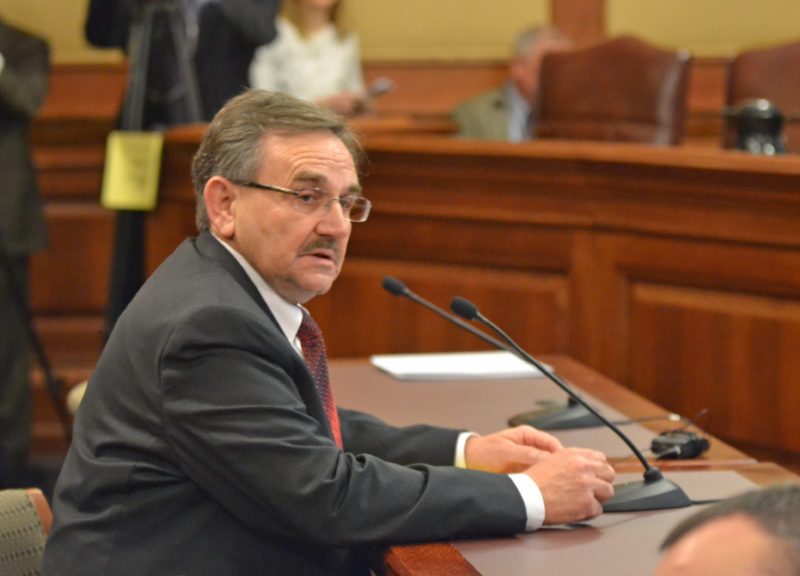JEFFERSON CITY, Mo. – Three bills in the General Assembly could change how the citizens of Missouri hear about public hearings, home foreclosures and other public notices.
Sen. Doug Libla’s SB 47 would create a state website under the Secretary of State’s office where public notices would be posted rather than in local newspapers, while Sen. Bob Dixon has a bill allowing home foreclosure notices to be posted online rather than in newspapers as well.
Rep. Robert Cornejo has a bill similar to Dixon’s in the House.
Libla, R-Poplar Bluff, says the purpose of the bill is to modernize the process of public notices and “get into the 21st century.”
“We should streamline the process,” he said, adding “It would be less costly to the state, to county and city governments, and to the citizens of Missouri that have to publish a legal notice.”
The government, banks and other organizations required to post public notices in their papers must pay newspaper publishers for space which would otherwise be used for advertising, according to Libla.
Libla argues his process may also be more transparent. With most local newspapers experiencing a decline in circulation, fewer people could see the notice. It would also allow anyone around the state to see a notice, not just a local, specific, and sometimes not well-defined, population from seeing the notice.
“Legal notices, if they’re done the way I’m talking, if people don’t live in a certain newspaper circulation area or don’t receive the newspaper, they may not even know a legal notice has been filed,” he said. “And they will by going to the Secretary of State’s office.”
However, the Missouri Press Association is not on board with the new pieces of legislation. Doug Crews, the legislative director of the MPA, said public notices should be published in printed newspapers because of the process involved in those notices. It means they are secure and archived.
In addition, a neutral third party is necessary, especially for government notices, so as not to allow the government to hide something in plain sight. The wide distribution of those notices ensures it can be read.
“In a way, it’s the fox guarding the hen-house if the government would set up the website,” Crews said. “You have to be actively looking for that notice to find it. The internet quite frankly is a great place to hide information.”
Libla’s bill was assigned to the Senate Local Government and Elections Committee, but it has yet to be scheduled for a hearing.








